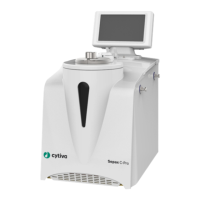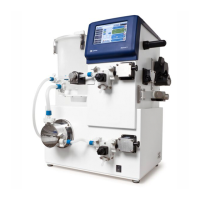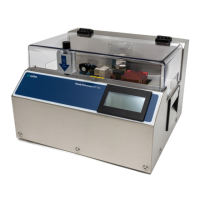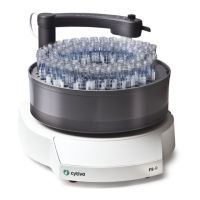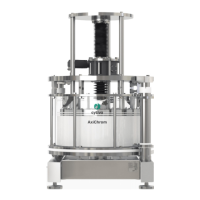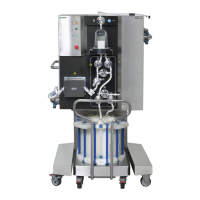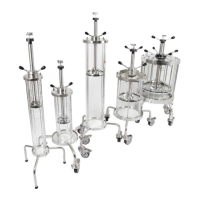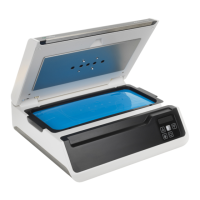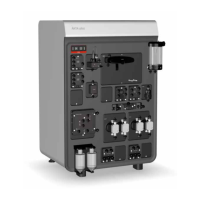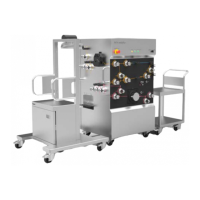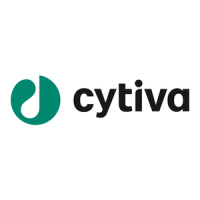Do you have a question about the cytiva Sefia S-2000 and is the answer not in the manual?
Key information for users before operating the Sefia instrument.
Purpose, scope, and typographical conventions of the operating instructions.
List of user documentation related to the Sefia S-2000 instrument.
General and specific safety guidelines for operating and maintaining the Sefia instrument.
Explanation of symbols and abbreviations found on the instrument and in the manual.
Step-by-step instructions for emergency shutdown and restart of the Sefia instrument.
Detailed overview of the main components and parts of the Sefia S-2000 instrument.
Explanation of the Sefia instrument's user interface elements and menu system.
Guidelines for operating the Sefia instrument in GMP workflows and regulated environments.
Information on system logging, recorded actions, and log categories.
Measures and responsibilities for system protection, user authentication, and data security.
Overview of available software applications and their corresponding processing kits.
Introduction to optional accessories for handling processing kits and peripherals.
Safety warnings and precautions relevant to installing and moving the instrument.
Required environmental conditions for operating, storing, and transporting the Sefia instrument.
Step-by-step instructions and safety guidelines for relocating the Sefia instrument.
Procedures and safety notes for connecting the Sefia instrument to electrical power and network.
Instructions for administrators to install software applications onto the Sefia instrument.
Guide for administrators on defining user roles and managing user accounts.
Procedure to unlock and reset user accounts after a BPAS software upgrade.
Instructions for operators to change their password and edit personal details.
Steps to connect the Sefia instrument to Chronicle for monitoring and data exchange.
Configuration steps for authenticating users via an Active Directory server using LDAP.
Crucial steps for correctly installing the separation chamber of a processing kit.
Detailed procedures for starting, logging into, logging out of, and shutting down the Sefia instrument.
How to save, view, and export summary, report, and log files from the instrument.
Procedures for viewing, filtering, and exporting system log data for analysis.
Instructions for modifying instrument settings like date, time, language, and regional options.
Guide for creating parameter groups and configuring application-specific parameters.
Steps to set up traceability groups and define visible traceability parameters.
Procedures for importing, synchronizing, and monitoring applications via Chronicle software.
Instructions for using the Mix Mode application for automated temperature-controlled mixing.
Overview of user maintenance tasks and recommended service intervals for the Sefia instrument.
Step-by-step guide for cleaning the exterior surfaces of the Sefia instrument.
Requirements for preparing the instrument and work area before scheduled maintenance.
General guidance for handling common warnings and errors, and resuming processes.
List of warning messages and their corresponding corrective actions.
Comprehensive list of error IDs, descriptions, and corrective actions.
Instructions for using the Purge application to recover chamber contents.
Procedure for manually extracting chamber contents using the pneumatic kit.
Information on contacting technical support and accessing troubleshooting resources.
Details on how to contact Cytiva support and submit cases online.
Key technical specifications including dimensions, power, and centrifuge performance.
Guidelines for disposal, decontamination, and recycling of the instrument and its components.
Overview of regulations and compliance statements for different regions.
Forms related to site service preparation and safety declarations for product return.
| Brand | cytiva |
|---|---|
| Model | Sefia S-2000 |
| Category | Laboratory Equipment |
| Language | English |
